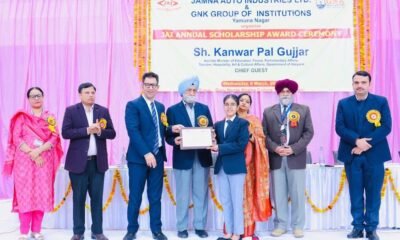LG chairs joint meeting of JKEDI, EDII
BK News
Jammu, Jan 6: ‘J&K Government is focusing on creating a robust ecosystem for growth and empowerment of entrepreneurs of J&K, besides paving a strong foundation to nurture the entrepreneurship abilities and skills of the youth’.
Lieutenant Governor, Manoj Sinha said while chairing a meeting with the officers of Jammu and Kashmir Entrepreneurship Development Institute (JKEDI) and Entrepreneurship Development Institute of India (EDII) Ahmedabad at the Civil Secretariat.
With the intervention of Lt Governor, the EDII will play a significant role in the implementation of entrepreneurship initiatives in J&K, including ATAL J&K Yojana. It will also provide area-specific technical expertise, handholding for Entrepreneurship Development Solutions for the Youth of J&K in Talent, Tradition, Tourism, Trade and Technology.
The Lt Governor asked the Jammu and Kashmir Entrepreneurship Development Institute (JKEDI) and Entrepreneurship Development Institute of India (EDII) Ahmedabad to work in close coordination with Mission Youth J&K to provide sustained handholding to the young and budding entrepreneurs for their inclusive growth and development.
The Lt Governor observed that the UT Government is working with a vision for engaging and empowering the youth of J&K by creating sustainable livelihood avenues for them.
Laying special emphasis on promoting self-employment for the skilled youth, the Lt Governor asked the concerned officers to identify potential sectors for growth and expansion in entrepreneurship.
He further asked them to lay special focus on the development and entrepreneurship training of SC & ST Candidates and prioritizing SC & ST majority districts for entrepreneur skill development of the youth.
Explicitly help SC & ST candidates and give consistent hand-holding to them. Workout the modalities for integrating the programme with Mission Youth, said the Lt Governor.
With the expertise EDII will bring to the table, the development of entrepreneurship in J&K would get a determined push to achieve desired results on the ground, he maintained.
During the meeting, a detailed presentation was given on ATAL J&K Yojana (Accelerated Transformation of Aspirations & Livelihoods for Youth in- J&K).
It was informed that the duration of the project is from the year 2021-24 covering 20 Districts with more than 35,000 youth to be oriented, creating 10,000 Conventional Tiny Enterprises (CTE) and more than 1000 Impact Making Enterprises (IME) to generate around 1 lakh direct and indirect employment.
On EDII & JKEDI approach in the initiative, it was informed that they are going to play a major role in identifying location-specific business on terms of Vocal for Local with the use of available resources and local skills; growth of the existing business by providing handholding, business development services, branding & networking; focusing on sectors and sub-sectors; mentoring and counselling in Compliances, Technology sourcing, Business plan & Credit Linkages; to focus on Startups under Incubation, Statutory requirements, Linking to Startup India Mission.
The project would have a great impact in mainstreaming entrepreneurship among local youth; wealth creation; balanced regional growth; increased competition among existing entrepreneurs; community development; employment generation; boost in economic growth by introducing new technologies, innovation and services.
Proposed interventions in J&K include Entrepreneurship orientation cum awareness program; Skill-Preneurship programs on various products/ Enterprises; training of Trainers programs on entrepreneurship development and capacity building of stakeholders and NGOs; innovation-based entrepreneurship certificate program; technology-based incubation support for new start-ups and interface with commercial technology support organizations; need-based research and policy action recommendation; project M&E, dossier and online tools are the primary responsibility of JKEDI and EDII, it was informed.
BVR Subrahmanyam, Chief Secretary; Nitishwar Kumar, Principal Secretary to the Lt Governor; Manoj Kumar Dwivedi, Commissioner/Secretary to the Government, Industries and Commerce Department; Prof Sunil Shukla, DG EDII; HK Mittal, Advisor, EDII; Raman Gujral, Director, Projects, EDII and GM Dar, Director, JKEDI attended the meeting.


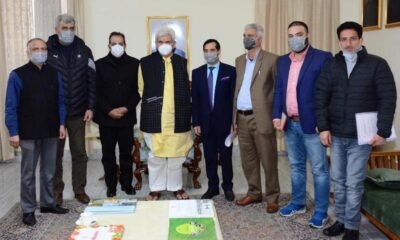

 Industry4 years ago
Industry4 years ago


 Economy2 years ago
Economy2 years ago
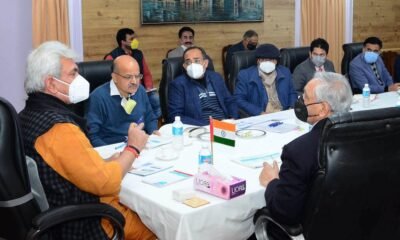

 Energy4 years ago
Energy4 years ago


 Infra4 years ago
Infra4 years ago
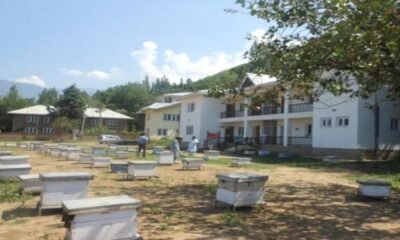

 AgriBiz4 years ago
AgriBiz4 years ago
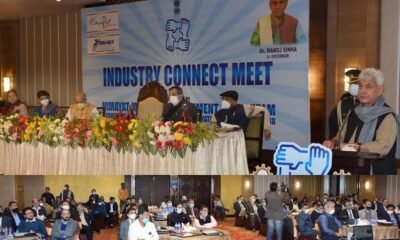

 Jobs5 years ago
Jobs5 years ago
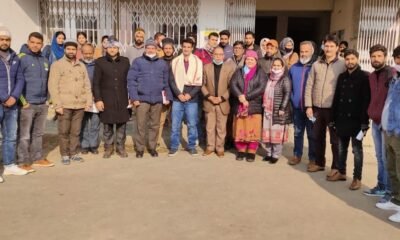

 Careers5 years ago
Careers5 years ago


 Industry5 years ago
Industry5 years ago









